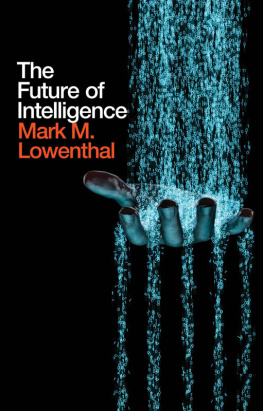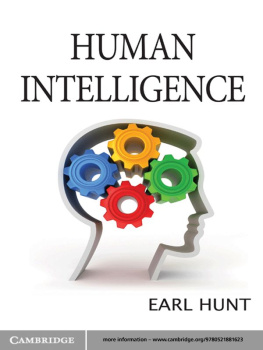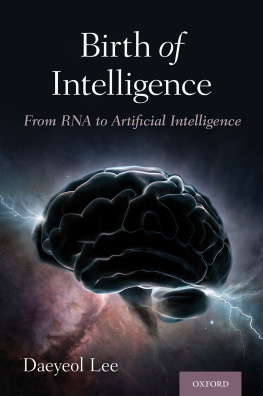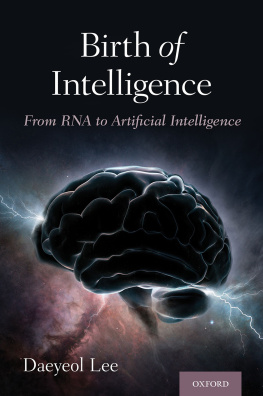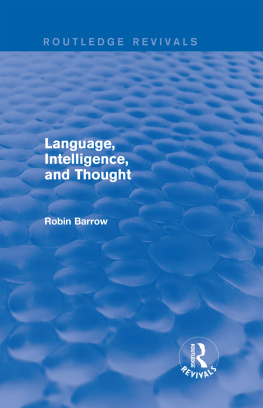Jonathan A. Plucker, PhD , is an endowed professor of education at the Neag School of Education at the University of Connecticut, teaching in the educational psychology and the educational leadership and policy programs. He previously served as a professor of educational psychology and cognitive science at Indiana University. He is past chair of the Research and Evaluation Division of the National Association for Gifted Children and past president of the Society for the Psychology of Aesthetics, Creativity, and the Arts, American Psychological Association (APA) Division 10. He has received numerous awards for his research, including the Early Scholar and Paul Torrance awards from the National Association for Gifted Children, the Berlyne and Arnheim awards from APA Division 10, and two awards from the Mensa Education and Research Foundation for Excellence in Research. He is an elected fellow of the APA and the American Association for the Advancement of Science. Dr. Plucker frequently teaches and lectures around the world on topics related to intelligence, creativity, and talent, and he has recently served as a visiting scholar at universities in China, Australia, and the United States. He is the creator of the website Human Intelligence: Historical Influences, Current Controversies, Teaching Resources (www.intelltheory.com).
Amber Esping, PhD , is an assistant professor of educational psychology at Texas Christian University in Fort Worth. Her research focuses on the history of intelligence theory and testing and the application of existential psychology to academic contexts and qualitative inquiry. She and Jonathan Plucker were co-recipients of the Instructional Resource Award from the Society for the Teaching of Psychology for their work with the website Human Intelligence: Historical Influences, Current Controversies, Teaching Resources, for which she has served as co-director since 2005.
Copyright 2014 Springer Publishing Company, LLC
All rights reserved.
No part of this publication may be reproduced, stored in a retrieval system, or transmitted in any form or by any means, electronic, mechanical, photocopying, recording, or otherwise, without the prior permission of Springer Publishing Company, LLC, or authorization through payment of the appropriate fees to the Copyright Clearance Center, Inc., 222 Rosewood Drive, Danvers, MA 01923, 978-750-8400, fax 978-646-8600, .
Springer Publishing Company, LLC
11 West 42nd Street
New York, NY10036
www.springerpub.com
Acquisitions Editor: Nancy S. Hale
Composition: Amnet
ISBN: 978-0-8261-1125-8
e-book ISBN: 978-0-8261-1126-5
13 14 15 16 / 5 4 3 2 1
The author and the publisher of this Work have made every effort to use sources believed to be reliable to provide information that is accurate and compatible with the standards generally accepted at the time of publication. The author and publisher shall not be liable for any special, consequential, or exemplary damages resulting, in whole or in part, from the readers use of, or reliance on, the information contained in this book. The publisher has no responsibility for the persistence or accuracy of URLs for external or third-party Internet websites referred to in this publication and does not guarantee that any content on such websites is, or will remain, accurate or appropriate.
Library of Congress Cataloging-in-Publication Data
Plucker, Jonathan A., 1969
Intelligence 101 / Jonathan Plucker, PhD, Amber Esping, PhD.
pages cm.(Psych 101)
Includes bibliographical references and index.
ISBN 978-0-8261-1125-8 (print edition : alk. paper)ISBN 978-0-8261-1126-5 (e-book) 1. Intellect. I. Esping, Amber. II. Title.
BF431.P5698 2014
153.9dc23
2013029360
Special discounts on bulk quantities of our books are available to corporations, professional associations, pharmaceutical companies, health care organizations, and other qualifying groups. If you are interested in a custom book, including chapters from more than one of our titles, we can provide that service as well. For details, please contact: Special Sales Department, Springer Publishing Company, LLC 11 West 42nd Street, 15th Floor, New York, NY 10036-8002 Phone: 877-687-7476 or 212-431-4370; Fax: 212-941-7842 E-mail: |
Printed in the United States of America by Gasch Printing.
To Kathleen, Paige, and Jack, who make it all worthwhile.
J. A. P.
For Thomas and Dylan. Ecclesiastes 4:12.
A. E.
Contents
Preface
A s researchers who study both creativity and intelligence, over time we have encountered very different reactions to this work from colleagues. On one hand, we get lots of comments like Why are you bothering with intelligence when that creativity stuff is so interesting? On the other hand, we also get comments along the lines of Why are you not focusing more time on your intelligence workyou know, the scientific stuff?
These comments reflect a paradox about the study of human intelligence that has been both a blessing and a curse: People generally dont think the topic is all that interesting, at least compared with other psychological constructs, but they also consider it to be a serious scientific enterprise. That sounds like the definition of boring science to us!
Admittedly, when we first encountered the topic in graduate school, our initial reaction was not Wow, this will be super exciting! But as we read a few good overviews of the topic (many of which are listed later in this book), we came to realize that intelligence is not boring. On the contrary, it is often outrageously controversial. As we learned about the interesting theories and research, then about scandals, sex, football, and social Darwinism, and then about more accusations of fraud and underhandedness than can be imagined, we decided, Sign us up!
After all, a well-known figure in the history of intelligence was the first football coach at the University of Southern California. One of the most famous psychologists who ever lived may have fabricated huge amounts of data on intelligence, perhaps even the majority of his workor maybe he didnt. In the first half of the 20th century the Nazis translated a popular American book about intelligence into German and used it to justify their agenda. Researchers now widely consider one of the most popular late-20th-century books on intelligence to be full of mistakes and mischaracterizations, yet it remains popular and is still used as a textbook in college classes. In many ways, the study of intelligence mirrors the history of psychology and the social sciences in general, and it has often been intertwined with major developments and debates in the wider society. For example, intelligence testing played a key role in World War I, debates over immigration policy have often focused on intelligence, and the publication of The Bell Curve in the early 1990s led to tremendous controversy and debates across our society.
As we move further into the 21st century, advances in genetics research and neuroimaging technology will undoubtedly raise new questions and provide fodder for fresh controversies. Human intelligence will continue to fascinate and agitate psychologists, educators, students, and the general public. We hope that this book will help draw you in so that you can become part of these conversations.
Acknowledgments
O ur perspectives on intelligence have been influenced by a number of scholars over the past few decades. In particular, the writings of Raymond Fancher were the first authors entre into intelligence theory and research, and Fanchers engaging approach to the history of the study of human intelligence was a major influence on how we approached this project. We also appreciate the time and contributions of several other eminent scholars on a range of issues over the years, including Camilla Benbow, Carolyn Callahan, Hudson Cattell (grandson of James McKeen Cattell), Jack Cummings, J. P. Das, Douglas Detterman, Carol Dweck, Donna Ford, Howard Gardner, Alan and Nadeen Kaufman, David Lubinski, Charles Murray, Jack Naglieri, Joe Renzulli, Dean Keith Simonton, and Bob Sternberg. Their willingness to provide input and constructive criticism to our work, debate us from time to time, and provide support strongly influenced our continued desire to study intelligence and ultimately made this book possible.
Next page


